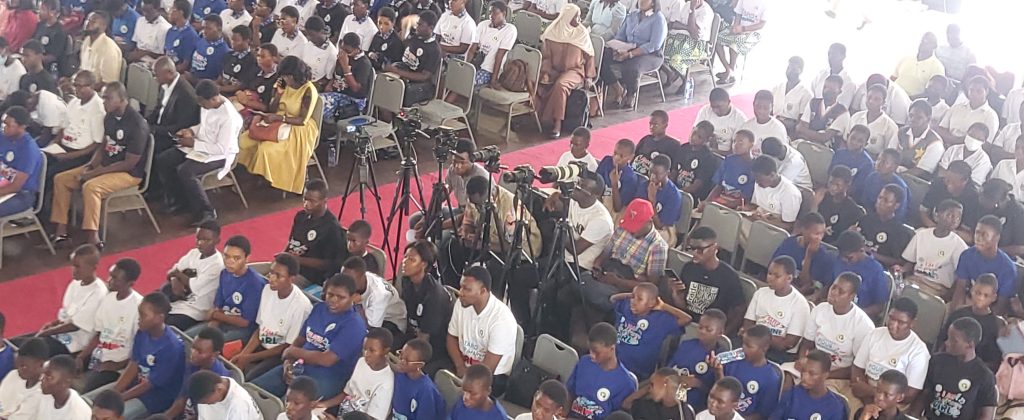By Kodjo Adams
Accra, April 8, GNA – Mr. Haruna Iddrisu, Minister of Education, says the Africa Educates Her (AEH) initiative should inspire stakeholders to take relentless action to support girls’ education.
He stated that the government had implemented interventions to ensure every Ghanaian girl, regardless of location, can live peacefully, learn, and achieve her potential for a better future.
The Minister said this in a speech read on his behalf during the national launch of AEH Phase II by the Africa Union International Centre for Girls’ and Women’s Education in Africa.
The theme was “Unlocking Girls’ Potential: STEM and Beyond.”
He said that the campaign reaffirmed Ghana’s commitment to protecting African girls’ educational rights, particularly those in emergencies, hard-to-reach areas, and marginalized circumstances.
The initiative addresses disruptions caused by COVID-19 to African education systems.
Phase I (2020–2023) aimed to mitigate learning losses for girls at risk, including child marriage, teenage pregnancy, and dropouts.
Phase II (2023–2025) targets persistent challenges like conflict, climate disasters, poverty, and gender norms limiting girls’ classroom access.
Campaign pillars include policy, advocacy, research, communication, partnerships, and capacity building.
Ghana supported Phase I through interventions such as gender-responsive school reopening policies, back-to-school advocacy led by the Ghana Education Service, community mobilization to reintegrate schoolgirls, and partnerships for more learning resources.

With 1.3 million children out of school, half being girls, the Minister urged against complacency.
Actions outlined in the Continental Education Strategy for Africa include legal frameworks for girls’ education, emergency support, gender-responsive education financing, and eliminating disparities in STEM and technical fields.
Mr Iddrisu said the government had integrated mentorship and STEM programmes across all 261 districts.
“We want data-driven interventions, partnering with relevant bodies to map out-of-school girls, especially in border and conflict-prone regions,” he said.
Professor Nana Ama Brown Klutse, Acting CEO of the Environmental Protection Authority (EPA), called for deliberate mentorship to discover children’s talents.
“When we educate young girls, we equip the nation to solve problems in our society.
“At EPA, we have mainstream gender advocacy to ensure equal access to education and opportunities,” she said.
Professor Nana Aba Appiah Amfo, the Vice-Chancellor, University of Ghana, called for support to end bullying and ridiculing young girls during their menstrual periods.
She said the University had a Centre for Gender Studies and Advocacy to ensure gender equity in all the institutional culture and Ghanaian society.
GNA
KAS